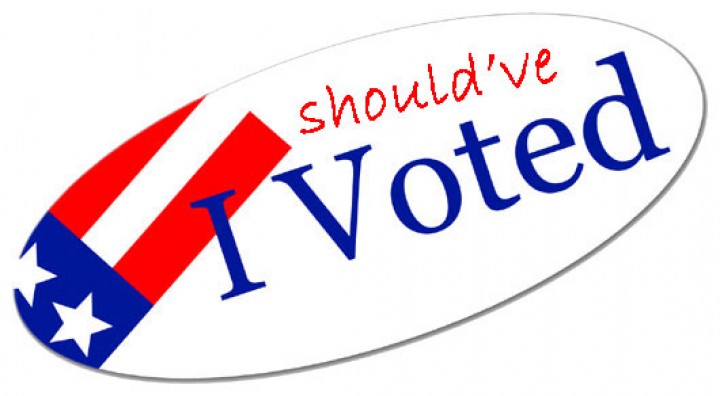I live in a condo on K Street — yes, that place seemingly symbolic of all that’s wrong with Washington. Although K Street was once the center of the lobbying industry, it isn’t anymore. Today, street vendors, the homeless and prostitutes line K Street before sunrise. I dodge them on early morning runs westward toward the White House.
It’s a striking image: me and my new Nike’s, meandering past the people I profess to lobby for, the “least of these.” Though I sometimes stop to talk briefly with a homeless person, I acknowledge that I am often insulated from people with real needs. I am well-networked and decently paid. I am part of a loving community. The prayers I offer as I run by, for God to intervene and provide, often seem futile. And so I choose to not only pray but to vote: for the millions among us who need lobbyists to advocate for their rights to life, liberty and happiness.
A number of my Christian friends have been talking and writing about how they are not going to vote in the 2012 elections. As a Mennonite whose spiritual history is linked to removal from society, I can respect people who believe that not voting is a way of subverting the powers and principalities of this world. And yet I’m concerned.
I’m concerned that too many folks haven’t fully considered what a privilege it is to vote, and what a privilege it is to not vote.
Choosing to not vote is a political and moral choice that strikes me as selfish. Consider the millions of people living in this country who want to vote but can’t. Consider the millions around the world whose governments either don’t allow them to vote or are so corrupt that it doesn’t matter if they do vote. It’s appropriate for us to be cautious voters, not expecting those we vote for to be messiahs — no politician is perfect — but let’s acknowledge that not voting is essentially passive support for those in power.
At the heart of the “to vote or not vote” conundrum is a question of allegiance: Can we faithfully follow Christ and patriotically participate in politics?
I think so, but only if we cling to hope. Only if we acknowledge that we are citizens of the kingdom of this world (primarily the United States) AND citizens of the kingdom of God (which is here but not yet).
Jesus compels me to put my faith in action. I take him seriously when he tells us to self-sacrificially love and serve God, neighbor and enemy. I take him seriously when he says that God’s reign is here but not yet. I take him seriously when he shows us to pray for God’s reign to come, for God’s will to be done, on earth as in heaven. These are not only moral statements; they are political, and subversive.
No political party can fully implement the politics of Jesus. But politicians do have the power to enact substantive change, even if they rarely do. Our voices and our votes can help direct politicians toward making policies that, at least in some way, care for “the least of these.”
It’s hard to make a case for voting when disillusionment is running rampant. We are deeply polarized, partly a result of being fed lie after lie. I too am cynical — a natural result of unmet high expectations. But cynicism is no excuse to check out of the political process.
In addition to voting, I am convinced that some of us “radical reformers” must expose the overwhelming obstructionism and lack of truth-telling among politicians today. The trick is that we also must maintain our free agent status as primary citizens of God’s reign, which may or may not involve secondary membership to a political party. It is our job as Christ-followers to creatively act for peace, justice and reconciliation in a world that contains much evil, and much good. Whether Democrat, Republican or independent, I am wary of anyone who claims to be implementing “God’s agenda.”
Although we can’t bring the reign of God to earth by voting or through government generally, we can use our votes to lobby for the people and issues we care deeply about. Voting is not the only or even best tool we have to express ourselves politically, but it’s a necessary tool — and it’s a privilege.
I’m headed to the polls this November, and I hope you are too. As Election Day approaches, I’ll be pondering what it means to do justice, love kindness and walk humbly with God as citizens of both the United States and the kingdom of God. Will you join me?
—–
Sheldon C. Good is assistant director of Eastern Mennonite University’s Washington Community Scholars’ Center. He lives in Washington, DC.

